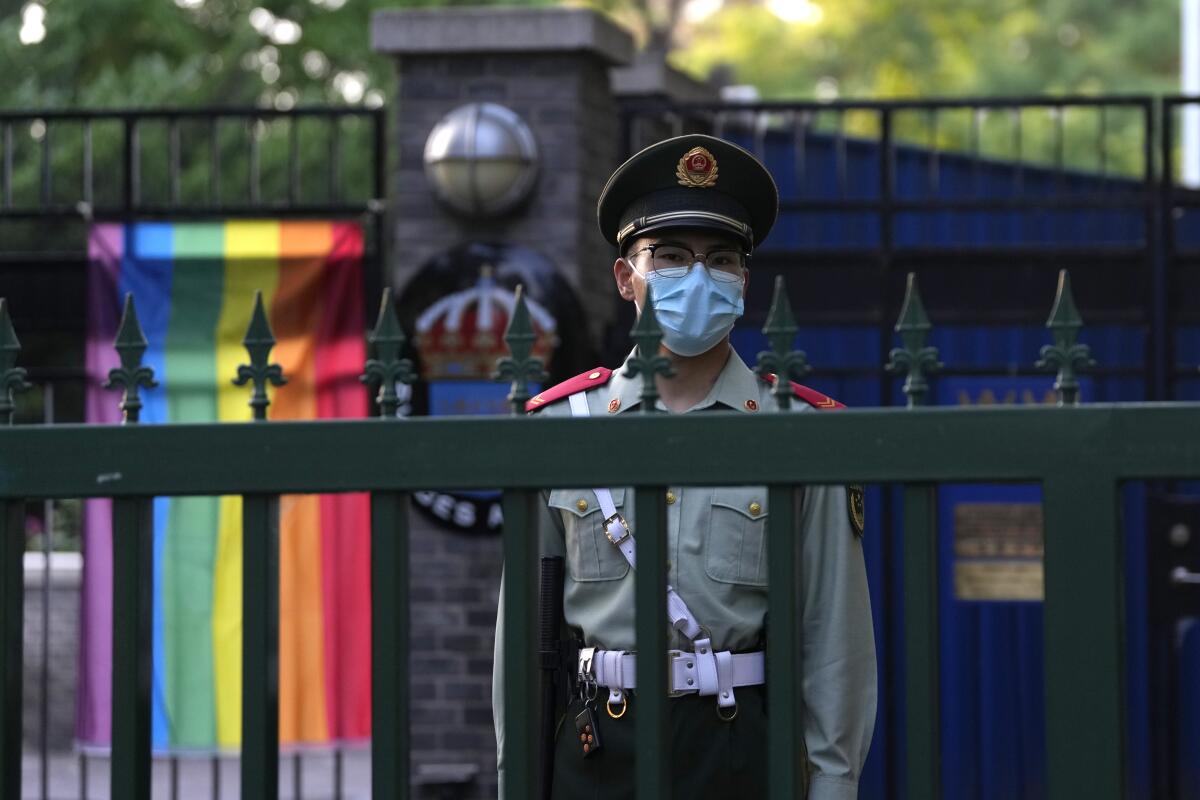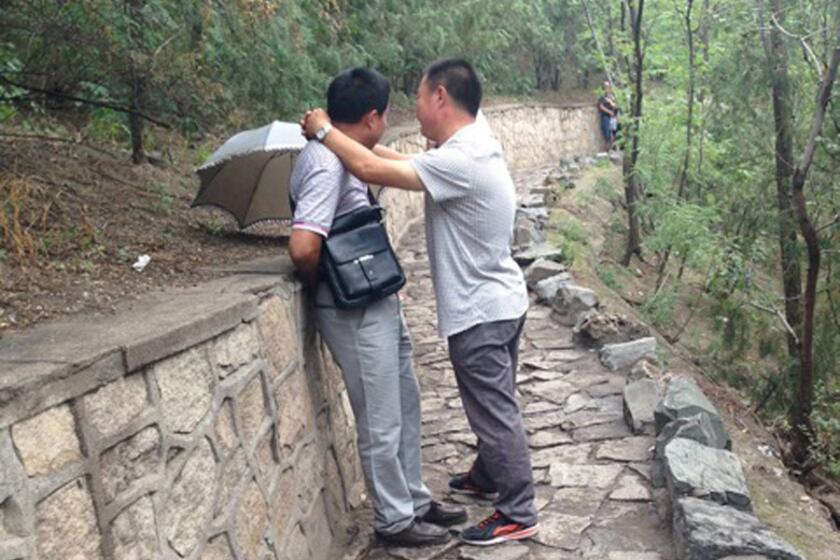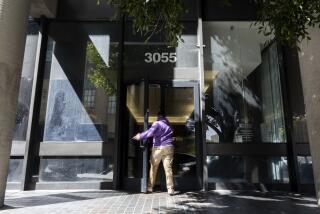Beijing LGBTQ+ center is closed as China cracks down on gay organizations

TAIPEI, Taiwan â An advocacy group that offered a safe space for the LGBTQ+ community in Beijing became the latest organization to close under a crackdown by Chinese President Xi Jinpingâs government.
âWe very regretfully announce, due to forces beyond our control, the Beijing LGBT Center will stop operating today,â read a notice posted on the centerâs official WeChat account Monday night.
The center did not respond to an email request for comment. Chinaâs Ministry of Civil Affairs, which oversees nonprofit organizations, also did not immediately respond to a request for comment.
The groupâs shuttering marks a major blow to advocacy groups that once had been able to be public about their work for LGBTQ+ rights.
âThey are not the first group, nor are they the largest, but because Beijing LGBT Center was in Beijing, it represented Chinaâs LGBT movement,â said one Chinese activist who requested anonymity out of fear for his safety. âIn our political, economic and cultural center, to have this type of organization, it was a symbol of the LGBT movementâs presence.â
The Beijing LGBT Center described its mission as evolving; it started as a safe space for the community to host events. Then it became an advocacy group aiming to âimprove the living conditions for the sexually diverse community.â It offered low-cost mental health counseling and published lists of LGBTQ+-friendly health professionals.
A judge in central China ruled against a gay couple in Chinaâs first-ever same-sex marriage case Wednesday, effectively hobbling a case that has electrified the countryâs lesbian, gay, bisexual and transgender activists.
The center hosted speakers, film screenings and other events. Mr. C, who keeps his real name secret to protect his parentsâ privacy, was one of the centerâs featured trans speakers. Mr. C sued his former employers for letting him go after an eight-day trial period, alleging that it was because of his gender expression. The center also hosted Liu Peilin, a trans woman in her 60s, who spoke about being mocked online for dressing in womenâs clothes.
Groups like the Beijing LGBT Center continued to publicly push for rights such as same-sex marriage even amid a crackdown on human rights lawyers and activists that started in 2015 after Xi came to power.
In the last few years, that limited space for advocacy has shrunk further.
The well-known group LGBT Rights Advocacy China, which brought strategic lawsuits to push for policy change and expanding rights, closed down in 2021. The groupâs founder was detained, and the organizationâs end was a condition of his release, according to an activist close to the group who was previously based in China but has since relocated abroad. He declined to be named out of fear of government retribution toward family in China.
In 1984, Ning Guofeng, a.k.a.
Before the crackdown, LGBT Rights Advocacy China built a network of lawyers who were sympathetic and willing to help LGBTQ+ people with legal issues. They had several visible nationwide campaigns pushing for policy changes, such as recognizing same-sex marriage, through targeted lawsuits.
LGBTQ+ organizations often donât officially register with authorities, as it is difficult for them to get government approval, and officially registered groups that partner with them have also come under pressure.
In July 2021, WeChat shut down dozens of accounts with LGBTQ+ topics that were run by university students and nonprofit groups. In response, some groups changed their names, removing words such as âgayâ or âsexual minorityâ that would easily trigger the censors, though the tactic was largely ineffective.
Until Monday, the Beijing LGBT Center stayed in operation despite the censors and growing pressure. The group worked with the United Nations Development Program to conduct a nationwide survey on sexuality and gender in 2015, aiming to provide a baseline on the hardships faced by LGBTQ+ people living in China. The survey asked respondents about their access to social services and healthcare, and how societal attitudes affected them.
In recent years, the group has focused on workplace diversity and inclusion. Last week, the center posted an article celebrating 15 years of work. âBeijing LGBT never had much money, and very few staffers, it was all dependent on hundreds of volunteers,â the article read.
More to Read
Sign up for Essential California
The most important California stories and recommendations in your inbox every morning.
You may occasionally receive promotional content from the Los Angeles Times.











